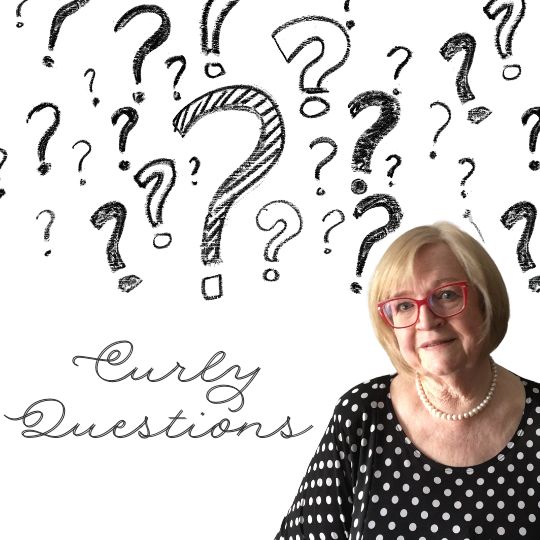Curly questions about getting married
/08
by Jennifer
Cram - Brisbane Marriage Celebrant © (12/01/2024)Categories: | Wedding Legals |
 I
regularly receive questions from random people (not
clients) asking curly questions about the legal side
of marriage.
I
regularly receive questions from random people (not
clients) asking curly questions about the legal side
of marriage.I don't mind a bit! Partly because the back story is usually complex and often wildly interesting So I always answer the question fully in order to steer the enquirer in the right direction to find an official answer, while making it quite clear that my answers are from the perspective of an experienced celebrant and should not be regarded to be legal advice. And I make a mental note to raise the issue with the couples I marry if it is relevant.
Here's a taster of some of the more frequent curly questions.
My marriage certificate
says I'm not married????
out
This is a question that occasionally comes up when
someone is planning on getting divorced and has had
a good look at their marriage certificate for the
first time.Worried caller: My marriage certificate says I'm Never Validly Married
Me: Nothing to worry about. The fact that you have an official certificate from Births, Deaths, and Marriages, means that you ARE married and your marriage has been registered. What Never Validly Marriage means is that you were never previously married so you're on your first marriage.
I'm trying to confirm if [
x ]'s marriage was legal
out for
This was a curly question in the extreme because- it involved a marriage that had taken place decades ago
- the enquirer was not a party to the marriage
- the question was prompted by anecdotal evidence about the records held by the church where the marriage was solemnised
So some exploration of the facts was needed. It
turned out that
- The enquirer had interpreted the fact that the
divorce was not noted on the marriage register
to mean that the marriage was not solemnised
because the Marriage Act says that a marriage
cannot take place without documentary proof of
how a previous marriaged ended being shown to
the celebrant. However, a record of a
marriage in a marriage register, signed by the
clergyperson or celebrant, the parties, and two
witnesses, is proof that the marriage was
solemnised, as is the Form 15 marriage
certificate given to the parties on the day.
Neither is proof that the marriage has been
registered. That's what the official certificate
proves. Solemnisation means that a ceremony was
conducted in the required form.
- Privacy considerations mean that no-one, other the the parties to the marriage, can obtain a copy of the marriage certificate from Births, Deaths, and Marriages, until 75 years after the wedding, so the enquirer was not able to obtain a copy of the marriage certificate. (The exception is if both parties are deceased and the applicant is either a child of the marriage or a solicitor involved in probating the will of one or both parties.)
- There is actually very little that might render a marriage void - regardless of any mistakes or omissions on the paperwork. so the fact that (anecdotally) the marriage record did not include the information that one party had been previously married but was divorced would not affect the legality of the marriageis actually very little that might render a marriage void - regardless of any mistakes or omissions on the paperwork. so the fact that (anecdotally) the marriage record did not include the information that one party had been previously married but was divorced would not affect the legality of the marriage
- While not telling the whole truth on the marriage papers won't automatically render the marriage null and void, it is a legal offence that could land the parties in prison or render them liable to a substantial fine.
- That a record of the marriage held in the
church's register is evidence that the marriage
was solemnised and a request to the church
archives to view the register might settle the
matter
- That, based on the information shared with me,
it would appear that the marriage was valid,
something that is confirmed when Births, Deaths,
and Marriages registers the marriage.
- That, in the unlikely event that the church
had not forwarded the marriage details to
Births, Deaths, and Marriages the information in
the church register would be enough to start the
process of having the marriage registered
How can I stop a marriage
going ahead?
out for
Enquirer was concerned that the motives of one of
the parties to the planned marriage were suspicious.
Another enquiry that took a while to unpack. But in
the end, the answer was simple. Unless there are extreme grounds - such as one of the parties not being capable of giving real consent and being under guardianship - there is no process for intervening. And even then it is not a straightforward process. It certainly isn't as simple as the movies make out. In Australian civil ceremonies, the objection question isn't asked, and the person authorised to solemnise the marriage is the one who must satisfy themselves that the parties are giving real consent.
Thanks for reading! And keep the questions coming.

pullin0 Things